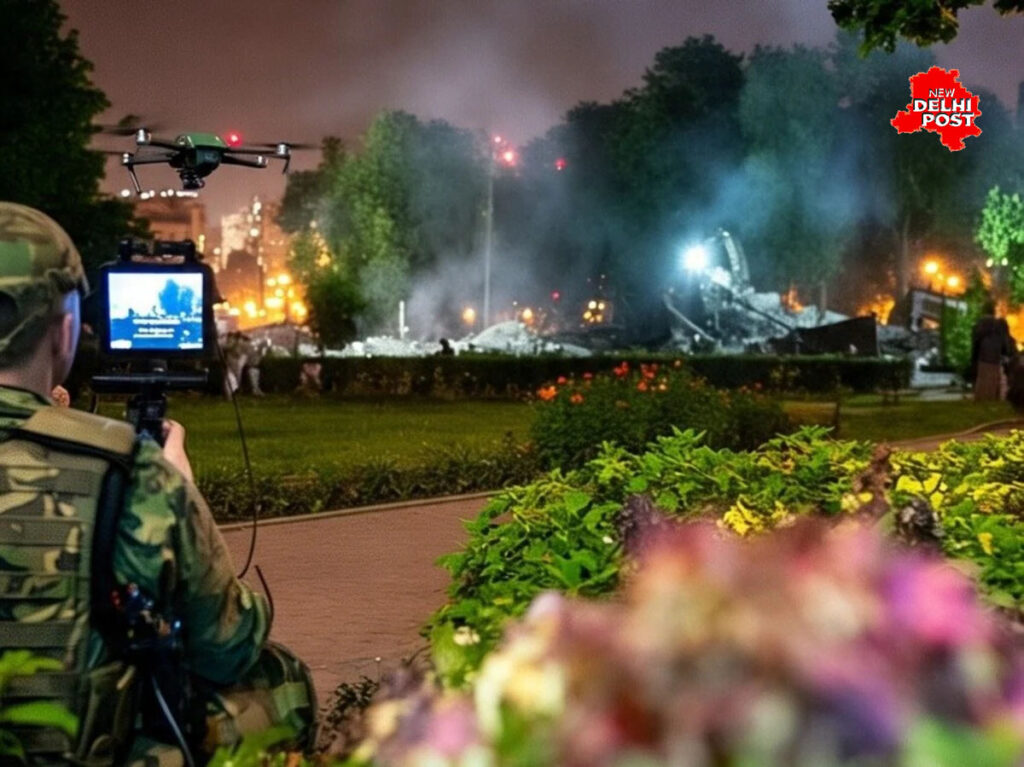Western allies escalate support for Ukraine, with Britain and Germany announcing massive aid to bolster Kyiv’s drone and missile capabilities in the ongoing war.
London: Ukraine’s military prowess is set to grow significantly as Britain commits to supplying 100,000 drones by April 2026, a tenfold increase in its drone aid, while Germany pledges £5 billion to fund long-range missile production. These moves signal unwavering Western support for Kyiv in its over two-year conflict with Russia, which has increasingly relied on drone warfare to inflict damage.
Britain’s Drone Revolution for Ukraine
The UK’s £4.5 billion military aid package, announced by Defence Secretary John Healey, prioritizes drones, which have transformed the battlefield. “Drones have changed the course of this war, offering Ukraine a strategic edge,” the British government stated. Thousands of drones will be delivered by year-end, with the full 100,000 targeted for April 2026. Alongside drones, the UK will supply substantial ammunition, reinforcing Ukraine’s ability to counter Russian advances. Britain’s historical opposition to Russia and its role as a key Ukrainian ally—having provided tanks, missiles, and training—underpin this commitment. A 2025 report by the Royal United Services Institute noted that drones account for nearly 70% of battlefield casualties in Ukraine, highlighting their critical role.
Germany’s Missile Funding Boost
Germany, the second-largest supplier of military aid to Ukraine after the US, has pledged £5 billion to help Kyiv develop long-range missiles capable of striking Russian military targets. Chancellor Friedrich Merz, speaking alongside Ukrainian President Volodymyr Zelenskyy, emphasized that these missiles will have “no range restrictions,” enabling Ukraine to defend itself effectively. The German Defence Ministry clarified that this aid targets a war-torn nation needing urgent arms production capacity. Merz’s shift from his predecessor Olaf Scholz’s cautious stance reflects a bolder approach, though he avoided confirming the supply of Taurus missiles, which have a 500-km range. Kremlin spokesman Dmitry Peskov called the move a “dangerous escalation,” warning of obstacles to peace talks.
Ukraine’s Drone Warfare Edge
Ukraine’s recent drone strikes, penetrating 5,000 km into Russian territory, have showcased its growing technological prowess. These attacks, targeting Russian military infrastructure like refineries and logistics hubs, have disrupted Moscow’s war machine. Zelenskyy, in a January 2025 address, praised Ukraine’s drone and missile advancements, stating, “Our weapons are bringing the war back to Russia.” The Atlantic Council reported that Ukraine’s 2025 air offensive, using domestically produced drones with a 2,000-km range, has caused significant damage, such as halting operations at Russia’s Ryazan oil refinery. Britain’s drone pledge and Germany’s missile funding aim to amplify this capability, potentially shifting the war’s dynamics.
Geopolitical Implications and Russian Response
The UK and Germany’s announcements have drawn sharp reactions from Moscow. Russian Foreign Minister Sergei Lavrov labeled Germany’s missile funding “direct war involvement,” warning of historical parallels to Germany’s past military overreach. On X, users expressed concerns about escalation, with some suggesting the aid could push Russia and Ukraine toward nuclear risks. However, analysts like Timothy Ash from Chatham House argue that such support pressures Russia to negotiate seriously, as Moscow has delayed peace talks, including a proposed US ceasefire. The UK’s drone coalition, backed by Denmark, Sweden, and others, has raised £73 million, signaling broad European resolve.
Future of Warfare and G7 Context
The emphasis on drones reflects a broader shift in warfare, with Ukraine and Russia producing millions annually. A New York Times analysis noted that drones now cause 70% of battlefield deaths, prompting discussions on whether future wars will be drone-dominated. Britain’s pledge aligns with its leadership in the Drone Capability Coalition, while Germany’s missile aid strengthens Ukraine’s long-range strike capacity. Regarding the user’s query about India’s absence from the G7 summit in Canada, it is not a diplomatic setback. India, not a G7 member, attends as a guest when invited, and its non-attendance reflects scheduling or strategic priorities, not a snub.


